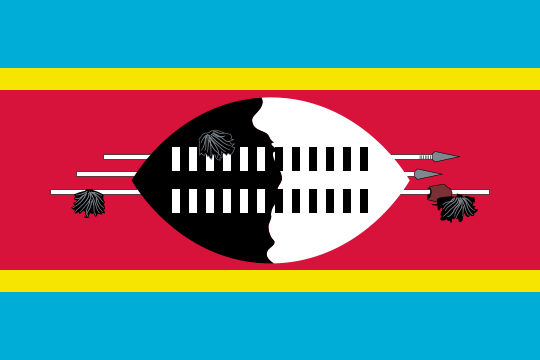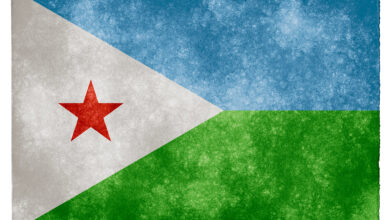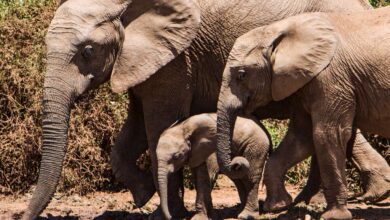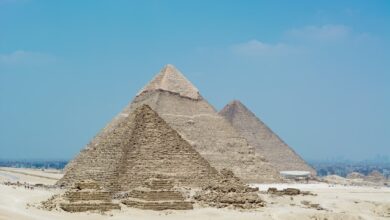Exploring the Kingdom of Eswatini, formerly known as Swaziland Facts, History, Culture & Travel – Africa Facts Zone
A Hidden Gem in Southern Africa

Eswatini, formerly known as Swaziland, is a small landlocked country in Southern Africa that often goes unnoticed by travellers.
However, this hidden gem is a destination that should not be missed. It offers a unique blend of natural beauty, rich culture, and warm hospitality.
In this article, we’ll explore the wonders of Eswatini and explain why it’s a must-visit destination for anyone seeking an authentic African experience.
Discovering the Stunning Landscapes of Eswatini
One of Eswatini’s most striking features is its diverse and breathtaking landscapes. From the majestic Lebombo Mountains in the east to the rolling hills and valleys of the Middleveld region, the country is a tapestry of natural beauty.
A particular highlight is the Malolotja Nature Reserve, located in the northwest. It offers hiking trails that wind through lush forests and past cascading waterfalls.
Another must-visit destination is the Hlane Royal National Park, which is home to a wide variety of wildlife, including lions, elephants, and white rhinos.
Visitors can embark on guided game drives or self-drive safaris to spot these magnificent creatures in their natural habitat.
Also Read: The Democratic Republic of the Congo (DRC)
Immersing Yourself in Eswatini’s Rich Culture
Eswatini is a country that takes great pride in its cultural heritage, and visitors have the opportunity to experience this firsthand.
The annual Umhlanga (Reed Dance) ceremony is a particularly impressive display of Swazi culture, where thousands of young women gather to honour the queen’s mother and celebrate their heritage.
Another way to immerse yourself in Eswatini’s culture is by visiting one of the many traditional villages scattered throughout the country.
Here, you can witness the daily lives of the Swazi people, learn about their customs and traditions, and even participate in traditional activities such as basket weaving or pottery making.
Exploring Eswatini’s Vibrant Arts and Crafts Scene
Eswatini is home to a thriving arts and crafts scene, with talented artisans creating a wide range of unique and beautiful products.
From intricate wood carvings to vibrant textiles and beadwork, the country’s crafts are a testament to the skill and creativity of its people.
One of the best places to experience Eswatini’s arts and crafts scene is the Ezulwini Craft Market, located near the capital city of Mbabane.
Here, you can browse stalls filled with handmade goods, chat with the artisans, and even watch demonstrations of traditional crafting techniques.
Savouring the Flavors of Eswatini’s Cuisine
Eswatini’s cuisine is a delightful blend of African and international influences, offering a range of flavours and dishes to satisfy every palate.
Traditional Swazi dishes such as umcombotsi (a fermented maize drink) and emahiya (a type of porridge) are worth trying, as they offer a glimpse into the country’s culinary heritage.
For those looking for a more international dining experience, Eswatini has a growing number of restaurants serving a variety of cuisines, from traditional African fare to Italian, Indian, and Chinese dishes.
The country is also home to several wineries, offering visitors the chance to sample locally produced wines.
Also Read: Ancient Civilizations of Africa and the African Empire
Conclusion
Eswatini may be small in size, but it is a country that packs a big punch when it comes to natural beauty, cultural richness, and warm hospitality.
Whether you’re interested in wildlife, outdoor adventures, cultural immersion, or simply soaking up the laid-back atmosphere, Eswatini has something to offer every traveller.
So why not add this hidden gem to your travel bucket list and discover the wonders of the Kingdom of Eswatini for yourself?
FAQs
What is the best time of year to visit Eswatini?
The best time to visit Eswatini is during the dry season, which runs from April to October. This is the most comfortable time for outdoor activities and wildlife viewing.
Is it safe to travel to Eswatini?
Eswatini is generally a safe destination for travellers, with a low crime rate and a stable political environment. However, it’s always important to exercise caution and follow basic safety precautions.
What is the official language of Eswatini?
The official languages of Eswatini are Swati and English. Most Swazi people speak both languages fluently.
Can I use my credit card in Eswatini?
Credit cards are widely accepted in Eswatini, especially in major cities and tourist areas. However, it’s always a good idea to carry some cash, as smaller establishments may not accept cards.
What is the currency used in Eswatini?
The official currency of Eswatini is the lilangeni (plural: emalangeni). The lilangeni is pegged to the South African rand, and both currencies are accepted in the country.
Are there any visa requirements for visiting Eswatini?
Most visitors to Eswatini do not require a visa for stays of up to 60 days. However, it’s always best to check with your local embassy or consulate for the most up-to-date visa requirements.
What is the best way to get around Eswatini?
The best way to get around Eswatini depends on your budget and preferences. Rental cars are a popular option for those who want the freedom to explore at their own pace, while public transportation (such as buses and taxis) is available for those on a tighter budget.





